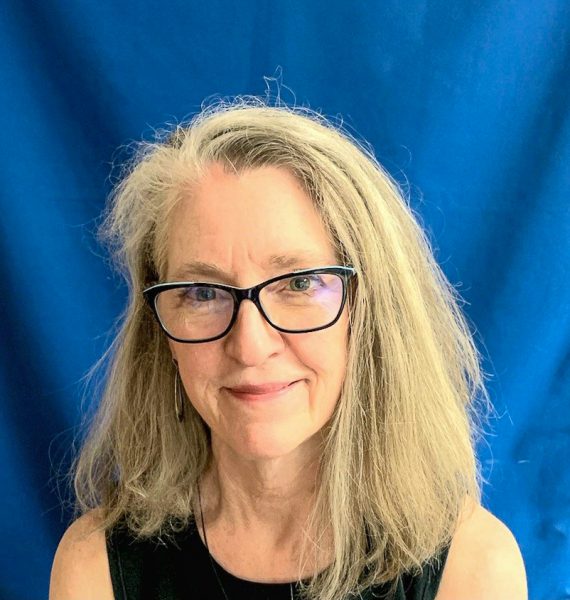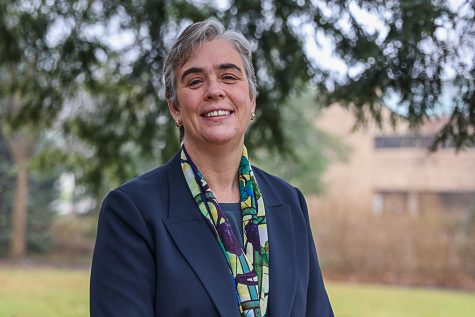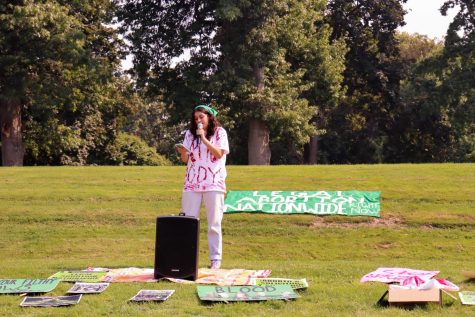Students react to “Think About It” orientation program
September 10, 2015
All new first year and transfer students were required to complete an online program entitled “Think About It” this summer, prior to arriving on campus.
Produced by the training service CampusClarity, “Think About It” uses real-life examples to cover information related to substance use, sexual encounters, relationships in college, and requires students to regularly answer questions to demonstrate engagement. Information is divided up into four sections: “Sex in College,” “Partying Smart,” “Sexual Violence,” and “Healthy Relationships.”
“Think About It” was first introduced to Whitman students in the summer of 2014 when 15 students were recruited to test the program and provide feedback to the administration. Responses to the program from these 15 students were overwhelmingly positive.
“Of the 15 students invited to test it, only one had a poor reaction to the program, stating she did not think Whitman students would care for it,” said Associate Dean of Students and Sexual Misconduct Prevention Coordinator Barbara Maxwell in an email to The Pioneer. “All the other students who completed the 2014 summer review raved about it. They felt it was realistic, taught important course material, and would resonate with Whitman students.”
Associate Dean of Students and Title IX Administrator Juli Dunn said the program sparked her interest due to its interactive nature. She hoped that it would provide students with a baseline of knowledge before arriving on campus and participating in related orientation programs including Green Dot, Consent, and hearing speeches by Will Keim and Jason Kilmer.
“In the past, for some students, the first touch on the information [regarding substance use, consent, etc.] has occurred during Opening Week,” said Dunn in an email to The Pioneer. “Assigning “Think About It” gives us some reassurance that the first time students are hearing about the concepts of bystander action, incapacitation, and affirmative consent isn’t in a room of 200 to 400 students where they might not feel as comfortable asking a question.”
“Think About It,” which takes approximately two and a half hours to complete, guides participants through a series of simulated situations complete with character descriptions, names and dialogue. It includes graphics, text, audio and the occasional video. Students completing the program are required to answer anonymous questions throughout to gauge their general knowledge of certain topics as well as survey their attitudes towards and past experiences with substance use, relationships, and sexual activity. After the first 35 students finished the course, subsequent participants gained access to data collected regarding the attitudes and experiences of their Whitman peers.
Students may verify information presented in the program by clicking on the “Resources” button, which provides sources for the gathered statistics as well as specific information on Whitman’s policies relating to the issues at hand.
Feedback from new students on the course was generally positive, with 89.2 percent of students saying that “the course helped them better understand campus sexual culture,” 98 percent saying they both “know how to safely have fun at college parties after completing our section on partying smart,” and that “they’ll be able to recognize attitudes condoning sexual violence,” and another 87.6 percent saying that the program provided them with a “fuller understanding of what a healthy relationship looks like.” Students gave the program an average overall rating of 4.1 out of five stars.
While some students said the program felt tedious or patronizing, most agreed that the information was useful.
“I actually did learn a lot,” said first-year student Danielle Hirano. “It was really informative, especially on the topic of consent.”
Students also appreciated the inclusion of LGBTQ examples into the program.
Ione Fullerton (’17) and Meg Rierson (’18), Co-Presidents of Feminists Advocating for Change and Empowerment (FACE), participated in the program as well. While they agreed that much of the information presented was useful, they were skeptical of how effective an online program could be at engaging students and combating rape culture.
“Methods of [deconstructing rape culture] should reflect [its] complexity by forcing students to challenge the ideas they have internalized,” said Fullerton. “[We need] spaces where students can interact. Spaces that foster discussion can provide that challenge in a more unavoidable way than an online course.”
“I am concerned that requiring first-year students to complete this online course also places the topic of sexual assault on the same level as other housekeeping tasks students must do prior to registration,” she added.
While Hirano also found the online component of orientation less effective, first-year Alicia Burg said that she enjoyed having the opportunity to interact with the program online.
“I personally really liked the computer,” said Burg. “I’m a more visual person, and if I engage in something I’ll pay attention [more than] if I’m listening to something and not engaging with it.”
CampusClarity has indicated that Whitman will have the option, if desired, to alter the program according to data and feedback from students. Once all new students have completed the course, the administration will evaluate data collected from the program and alter upcoming programs accordingly, potentially working with a group of student interns. Maxwell spoke to The Pioneer about some of the questions they will consider.
“Specifically, do students indicate that they learned important information from each of the sections? Are there ways to support [or] reinforce this learning throughout the year? Are there areas where the results surprised us? If yes, in what ways and how do we respond to that? Are there areas of the course students did not care for — can we work with CampusClarity to alter those sections in some way?” she said.
Students will also have the option to participate in two short follow-up programs in mid-October and February.









